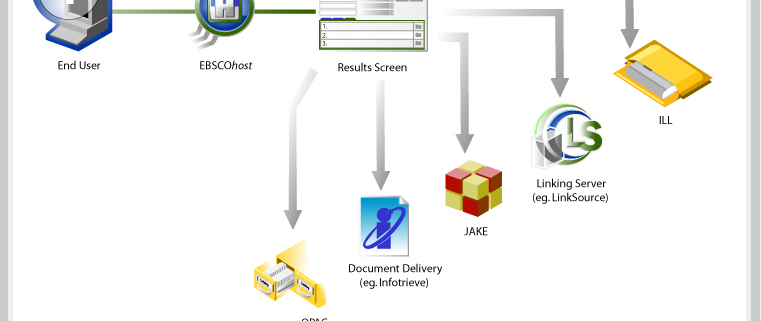The EBSCO aggregator database extends the Youtube channel in EBSCO Help
“Database aggregator is different from publisher, both have their own shortcomings and advantages” explains Erick Junikon who is the field respresentative of EBSCO in Digital Resources Workshop by EBSCO Team. This activity was held on Thursday, March 15, 2018 at Seminar Room of Lt 2 Building L1 UGM Library.
Furthermore, Erik Junikon explained that Database aggregator itself is a secondary distributor, in which they only licensed content from various publishers and did not publish their own journals. The advantage of aggregators is where the content they have is more and varied because they have access to licensing from many publishers. While a publisher, only present articles that they publish themselves so that the number and topic will be more limited. The weakness of the aggregator database is where they could be embargoed from the main publisher so that the articles or journals that are accessed can not be viewed in full text.
Gadjah Mada University, through its own UGM Library, subscribes to several aggregrator databases, EBSCO, ProQuest and Gale. Thus the information presented by Nawang Purwanti as the Head of UGM Library, while giving a speech at the same time opened the 7th day workshop of 10 days. The aggregator database provides a wide selection of diverse journal, making it suitable to facilitate the need for articles for UGM civitas academica who pursue various disciplines. UGM library selects 3 databases that are academic search complete, business source complete and EBSCO e-book.
The workshop is presented in a presentation format and access practice, and is interspersed with information on how to submit journal articles to various publishers indexed by EBSCO. At the end of the workshop, Erik held a live demo tutorial how to log this and access articles and journals contained in EBSCO. If you still have difficulties accessing and using EBSCO complete guide can be seen on Youtube channel in EBSCO Help. Hopefully through this session the users will be easier to access services that have been provided by EBSCO as database aggregator. [Author: Fadhilla, Nur Cahyati Wahyuni]



